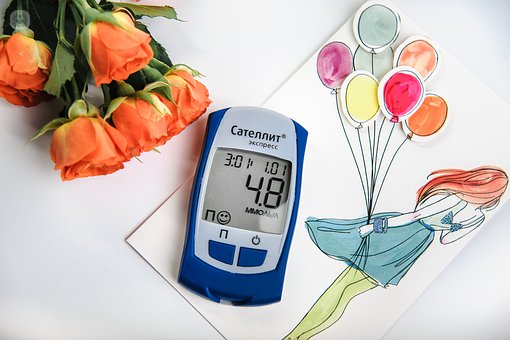Are you at risk of late onset diabetes?
Autore:Being an autoimmune disease, type 1 diabetes can present itself at any age, but it’s more commonly seen in the younger population. The exact cause or trigger factors are not completely known but research is ongoing to establish any genetic and environmental link.

One particular form of diabetes seen in older groups (over the age of 40) is called LADA or Latent Autoimmune Diabetes of Adulthood, also known as type 1.5 diabetes.
This type of diabetes presents itself slowly and is often diagnosed as type 2 diabetes and treated primarily with oral medication. Usually, patients will need to go on insulin injections must sooner than individuals with type 2 diabetes and tests confirm that these patients are positive for anti-GAD antibodies, which are seen in auto-immune diabetes type 1. In other words, LADA shares characteristics of both type 1 and type 2 diabetes.
We asked endocrinologist Dr Rasha Mukhtar to tell us more about late onset or LADA diabetes.
How common is late-onset diabetes?
The actual prevalence of LADA is not known but many studies have suggested that up to 10% of individuals between the ages of 40 and 75 years who are diagnosed with type 2 diabetes are likely to have LADA.
What are the early signs of LADA?
Symptoms of LADA are usually similar to other forms of diabetes, such as:
- Thirst
- Excessive tiredness
- Frequent urination
- Rapid weight loss
- Blurry vision
- Recurrent thrush

It is uncommon for patients to show extreme symptoms like ketoacidosis unless they have had a precipitating illness causing further stress on the body. Diabetes is the slow destruction of islet cells that produce insulin, so symptoms can often be slow to appear.
Symptoms are mostly uncovered during annual health checks or during hospital admissions for other health reasons. If you do experience any symptoms like those mentioned above, we recommend that you visit your G.P to be screened for diabetes.
Who is most likely to develop type 1 diabetes as an adult?
There are no clear markers as of yet, to identify who is more likely to develop type 1 diabetes in adulthood. Studies suggest that risk factors associated with type 2 diabetes like being overweight and low levels of physical activity are associated with the condition.
LADA doesn’t share the same coding as those with type 1 diabetes. However, this form of diabetes also has an auto-immune aspect, so factors other than lifestyle and physical health have a role to play. There has been an increase in the incidence of thyroid dysfunction in individuals with LADA, so there could be a correlation here.
How is late-onset diabetes diagnosed in adults?
The initial diagnosis is the same for diagnosing both type 1 and type 2 diabetes, which is the confirmation of high levels of sugar in the blood, following an HbA1c test. If blood sugar is above 48mmol/mol when fasting, this is considered to be high.
Following this simple blood test, the presence of auto-immune antibodies will be checked. Patients with LADA usually have the same antibodies in their blood that are found in people with type 1 diabetes.
Some doctors may check the Insulin and C-peptide levels to determine the endogenous pancreatic function.
What does treatment look like?
Treatment usually starts with dietary changes and as the pancreatic dysfunction is slow, this might last for up to 6 months or more. Once there is a loss of sufficient insulin production, then treatment is usually very similar to type 1 diabetes with insulin replacement therapy in the form of daily injections. Research is still ongoing to decide whether oral medication would be of benefit but no consensus has yet been reached for the management of LADA in tablet form.
If you’d like further information or you would like to book an appointment with Dr Mukhtar, please visit her profile via Top Doctors.


